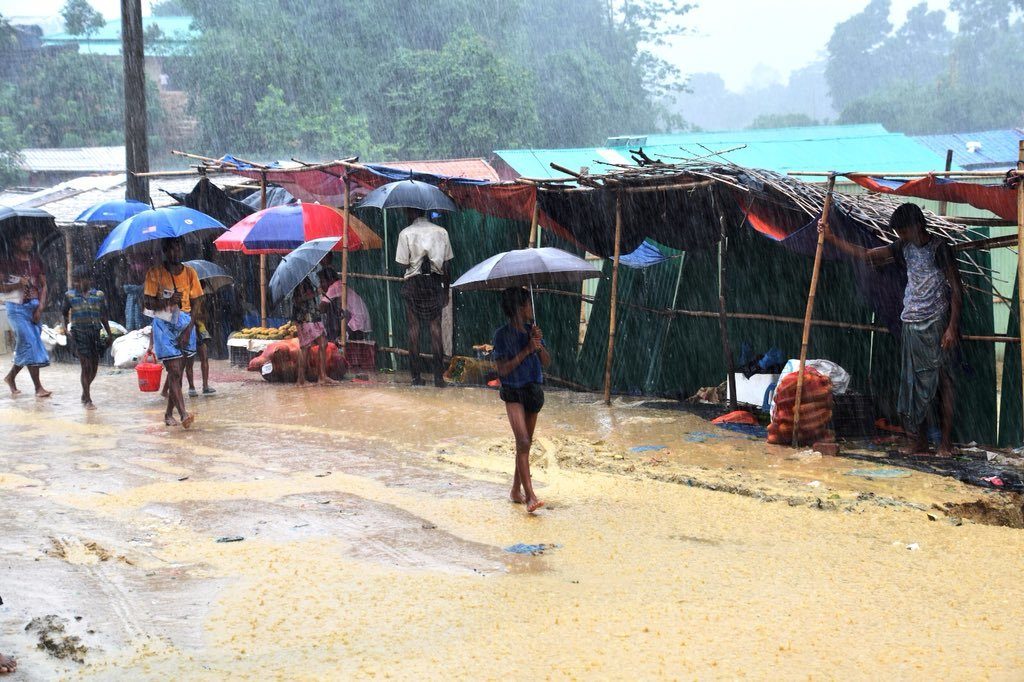Peak Rains in Bangladesh

Buckets of torrential rain are falling on the world’s largest refugee camp, and the lives of hundreds of thousands of Rohingya refugees are in jeopardy.
“Food plays a vital role during any crisis,” said World Food Programme (WFP) staffer Barna Paul in Cox’s Bazar. “If we are hungry, we neither have the energy to survive nor the ability to rebuild our lives.”
With so much at stake, it takes a village of people, expertise and resources to get the job done. That’s why WFP is working with its U.N. and NGO partners to minimize the impact of the monsoon season, which is due to last until September.
Delivering aid requires reliable infrastructure–without it, communities become isolated and access to food becomes difficult and dangerous. Heavy rains are having a significant impact on refugee shelters and road access for critical humanitarian aid. UNHCR estimates that up to 200,000 people living in the various camps could be affected.
“Makeshift homes hastily built by the refugees on arrival are now threatened by mudslides, requiring urgent action to find alternative sites and build stronger shelters,” wrote U.N. Secretary General Antonio Guterres in the Washington Post last week after his recent trip to Cox’s Bazar.
WFP engineers are working with their partners around-the-clock to mitigate the impact of flash floods and landslides. Thanks to consistent and reliable funding in previous months, the International Organization for Migration, UNHCR and WFP were able to prepare 100 acres of land to safely relocate 34,000 vulnerable Rohingya refugees to safer and flatter grounds. This meant using earth-moving machines and hundreds of workers to turn hills, valleys and steep slopes into usable land.

WFP/Saikat Mojumder
Each month, WFP provides emergency food assistance to 850,000 Rohingya refugees. A recent nutrition survey shows a reduction in acute malnutrition rates among children under the age of five in the camps–the first time this figure has fallen below emergency thresholds. WFP hopes to capitalize on those gains by reaching more than 160,000 women and children each month with specialized nutritious food.
WFP also hopes to bring all refugees into its e-card program by the end of 2018, which allows people to buy a greater variety of nutritious food of their own choice. E-cards can be used in retail shops to buy 19 different items, including rice, lentils, fresh vegetables, eggs and dried fish, leading to more diverse diets.
To address critical shortages in fuel and firewood, the humanitarian agency has begun working with the Food and Agriculture Organization, IOM and UNHCR on a Safe Access to Fuel and Energy (SAFE) project. Under this project, 180,000 refugee and host community families will have access to alternative cooking fuel.




